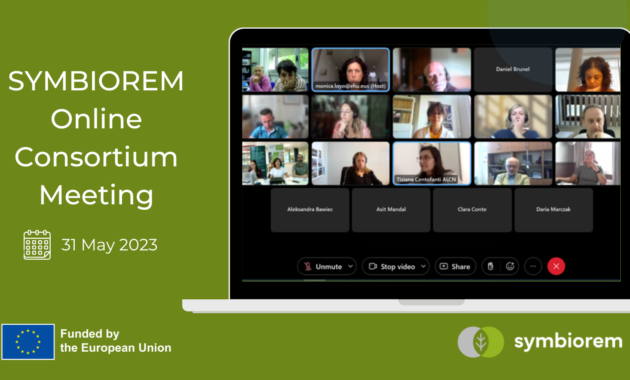On February 28, 2024, SYMBIOREM organized a workshop for high school students. in Wrocław. The workshop aimed to conduct public consultations among a group of young people and to learn about their ecological awareness and their opinions on the need of urban space revitalization, as part of the SYMBIOREM activities of citizen engagement and co-design of bioremediation solutions.
The workshop was conducted by the team of researchers of the Wroclaw University of Environmental and Life Sciences, dr Wiesław Fiałkiewicz, prof. Katarzyna Pawęska, dr Anna Kancelista and dr Aleksandra Bawiec, and was attended by 25 high school students.
After an introduction to the project and to its sustainable development goals, the students were divided into 4 teams and asked to brainstorm on two questions:
- One of the sustainable development goals is the so-called well-being. What do you think it means?
- How do you understand the concept of “nature in the city”?
After answering two questions, the presenter from each team elaborated its results to all students. All four presentations were then summarized by dr Kancelista.
The second part of the workshop was dedicated to identifying the pros and cons of the Stanisław Tołpa Park located in the immediate vicinity of the school, with the support of a board to collect the different ideas that came out of the discussion. Among the advantages, students most often identified the possibility of resting in nature, the presence of a pond and biodiversity of fauna and flora in the park. The disadvantages included: the lack of a sufficient number of garbage bins and other park infrastructure, noise resulting from the park’s location at the intersection of busy streets, and high water pollution in the pond.
In the last section, the discussion focused on ways of improving the quality of the environment in the Park and in particular the quality of water in the pond. Students mentioned actions such as the filtration and introducing of aquatic plants, which would also increase biodiversity in the reservoir.
After a fruitful discussion, dr. Bawiec summed up the workshops and closed the meeting with by inviting students to participate in subsequent events organized within the project, such as an educational walk around the pond in the Stanisław Tołpa Park. Students received also personal certificates for participating in the workshop. This workshop is an example of the activities of SYMBIOREM that focus on developing a collaborative approach to enable pilot site leaders in an effective engagement of citizens in the co-creation of bioremediation solutions, in order for them to familiarize with local pollution issues and to understand the benefits of functioning of bioremediation solutions


